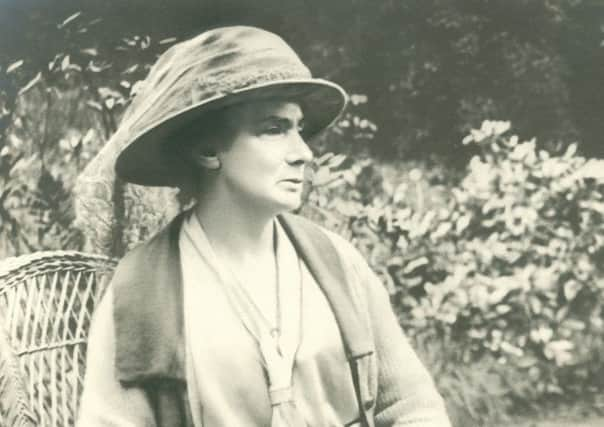Doric poet to be honoured with plaque


A Doric poet whose works are considered among the finest war poetry capturing the grief and loss of the First World War, is being honoured by a plaque celebrating her contribution.
The plaque to honour Mary Symon – who was born in 1863 in Dufftown in Banffshire and who described the suffering of those in rural communities – is the last in a series across the country in recognition of Scotland’s war poets.
Advertisement
Hide AdAdvertisement
Hide AdThe trail of war poets plaques has been unveiled as part of the Historical Environment Scotland plaque scheme, which has been running since 2012 to celebrating significant figures from Scotland’s history by placing plaques on buildings where they lived or worked.
Last night’s ceremony, at Dufftown Town Clock, was due to be led by the Lord Lieutenant of Banffshire Lady Clare Russell with children from Mortlach primary school and Speyside High School. Representatives of Dufftown and District community council, Douglas Ross MP and Richard Lochhead MSP were also due to attend.
Symon’s work was published in Aberdeen University Review and the Scots Magazine. Her poetry was later printed in Hugh MacDiarmid’s Northern Numbers, a magazine at the heart of the modernist renaissance in Scottish literature.
The project was led by Neil McLennan, a senior lecturer in education at the University of Aberdeen, whose great-grandfather fought alongside Scottish war poet Ewart Alan Macintosh at Cambrai in northern France when the poet was killed in 1917.
The other war poets remembered by memorials include Wilfred Owen, Siegfried Sassoon, Robert Graves and Margaret Sackville in Edinburgh, Ewart Alan Mackintosh in Dingwall, John Buchan in Perth, Charles Hamilton Sorley in Aberdeen and Joseph Lee in Dundee. There is also a national memorial to all Scotland’s War Poets at Makar’s Court in Edinburgh.
Mr McLennan said that over the past century, in common with many other Scots wartime writers, Symon’s work has been largely forgotten.
“The War Poets Scotland Committee are most grateful to Historic Environment Scotland for this plaque in memory of Mary Symon.
“It ensures her words are shared publicly for many to see in the years to come. She was not only a fine poet but one who captured the hidden loss in rural communities during the First World War.”